Diane Schmitt
Pre-Conference Event (PCE)
Date: 30 May 2024
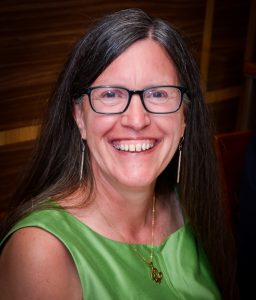
Diane Schmitt was a Senior Lecturer in EFL/TESOL for 25 years at Nottingham Trent University and now works as an educational consultant in the areas of English for Academic Purposes, vocabulary acquisition and pedagogy, writing from sources/plagiarism, materials development, language development in English Medium Instruction contexts and quality assurance. She has served as Chair of BALEAP, on the editorial board of JEAP, on the TOEFL Committee of Examiners, and as Chair of the NCUK Programme Quality Committee. She has published on the above topics in a range of journals and books and, together with Norbert Schmitt, co-authored both academic and pedagogic books for learning and teaching vocabulary.
EAP and AOA – Practice in Search of a Theory
For teachers like me who began teaching EAP in the early 1990s, there were few EAP textbooks on the market and assessment was limited largely to TOEFL and IELTS. Most EAP teachers learned their trade on the job. My own teaching was guided by a strong grounding in SLA theory, skills based and project work approaches to language teaching, and content-based language teaching. Through trial and error, years of experience, reading, conference attendance and membership of a fantastic EAP teacher organisation, I developed my own approach to EAP pedagogy. Over the last two decades, EAP has witnessed exponential growth. As student numbers increase, there has been a commensurate increase in demand for EAP teachers and materials to support them. Now what passes for EAP varies significantly from context to context. Piccardo and North’s (2019) observation that when it comes to change and innovation in language teaching “practice has often been ahead of theory” (Section 1.1.1) seems especially apt for EAP. In this talk, I will consider the extent to which their recent work to theorise the professional pedagogical “know-how and action” of grassroots teachers with regard to the “Action-Oriented Approach” (Council of Europe, 2001) provides a model for theorising EAP with particular reference to EAP syllabus and assessment development.
Assoc Prof. Huahui Zhao
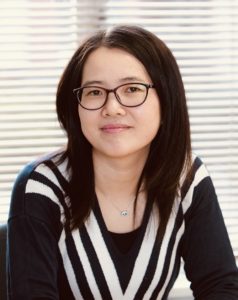 Dr Huahui Zhao is a Lecturer in Language Education at the University of Leeds. She teaches and supervises undergraduate and master’s students and doctoral researchers in areas related to technology-enhanced language education. Her research mainly lies in the interplay between language assessment and digital education. She has carried out national and international projects on assessment and technology-enhanced education, funded by varied research bodies. She has published widely in prestigious journals in both areas. Currently, she is conducting a funded project investigating how generative AI shapes the process and product of university student writing and what the implications for written assessments in Higher Education and English proficiency tests.
Dr Huahui Zhao is a Lecturer in Language Education at the University of Leeds. She teaches and supervises undergraduate and master’s students and doctoral researchers in areas related to technology-enhanced language education. Her research mainly lies in the interplay between language assessment and digital education. She has carried out national and international projects on assessment and technology-enhanced education, funded by varied research bodies. She has published widely in prestigious journals in both areas. Currently, she is conducting a funded project investigating how generative AI shapes the process and product of university student writing and what the implications for written assessments in Higher Education and English proficiency tests.
Navigating Generative AI in Language Education: Opportunities and Challenges
The release of Large Language Models (LLMs), exemplified by ChatGPT and its remarkably human-like responses, has ignited huge debates about how generative AI will transform education and literacy practice. As educators, we find ourselves at a pivotal juncture—an opportunity to harness AI’s potential while addressing its challenges. To embrace the opportunities and challenges, as language educators, rather than refuting AI as a disruptive force, we shall think about how we can transform our language pedagogy to cultivate proficient language users in partnership with generative AI (GenAI).
In this talk, I will review the current debate on the impact of GenAI on language education. I will invite you to brainstorm a few questions that you might have asked yourself in your teaching practice: In an increasingly AI-powered landscape where traditional metrics of language proficiency may fall short, how do we teach and evaluate written proficiency? Language proficiency extends beyond mere fluency with the assistance of GenAI. How important is it to expand the instruction of language proficiency to the cultivation of academic literacy in which critical thinking plays a pivotal role? Balancing AI assistance with individual expression is crucial to retain distinctive human voice. How do we ensure that GenAI does not overshadow students’ unique voices? In the talk, I will also share empirical data from my current project and invite you to ‘spot the differences’ between AI-assisted writing and human-only writing and subject tutors’ feedback on the two types of writing. To uncover how GenAI affects the process and product of literacy practice, I will share examples of students’ chat histories with GenAI to reveal how they engage with GenAI and AI-generated outputs. Based on the analysis, I will invite you to envisage the future of English, English users, and English education in an AI-enabled/infused era. The future of English lies at the intersection of human expertise and AI capabilities. How can we leverage GenAI to enhance language learning and communication? Equipping learners with AI literacy is essential. How can we help them understand AI’s strengths and limitations and make informed choices in their language use? Our classrooms will evolve in an AI-infused education sphere where students thrive. How can we support our students to retain their distinct voices while embracing the power of GenAI? If you are curious about my initial reflections on the impact of GenAI on language education, I invite you to explore my blog via Impact of Artificial Intelligence on authentic assessments, education and job readiness | by Leeds Educators | Leeds Educators Present | Medium.
Christan Puren
Conference
Date: 31 May – 1 June 2024
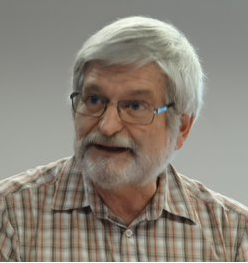
Christian Puren is a French specialist in teaching French and Spanish as foreign languages. He has served as a director, editor, or advisor for publishing several textbooks and pedagogical guides in these two languages. He is a member of various scientific committees of French and international journals, having published over two hundred articles on language and culture didactics. For the past twenty years, he has placed particular emphasis on the implementation of the Social Action-Oriented Approach (SAOA) and the relationship between didactic innovation and technological innovation. All his works are freely downloadable from his personal website www.christianpuren.com/.
The Convergences between the Social Action-Oriented Approach (SAOA) and digital tools
In this talk, we will reflect on the effects of the current intersection of two innovations in language-culture teaching: The SAOA and digital tools. First, I’ll describe the characteristics of the SAOA, which stem from the principle set out in the 2001 CEFR, namely, to consider both the learner in his or her classroom micro-society and the user in the outside world as social actors, which necessarily implies a paradigm shift away from the hitherto dominant communicative approach. Secondly, I will highlight the convergences between the SAOA and the didactic potential of digital tools, ending with the prospects opened up by Artificial Intelligence (AI): by enabling students to make immediate use of L2 -the second paradigm shift-, AI overturns the relationships hitherto established between the three fundamental didactic processes of teaching, learning, and use.
Olena Rossi
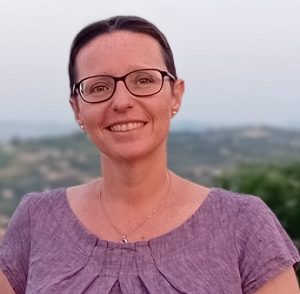
Dr. Olena Rossi has obtained an MA and a PhD in Language Testing from Lancaster University, UK. One of her main professional interests is in using artificial intelligence for language assessment. Currently, Dr Rossi works as an independent assessment consultant, based in Italy. She conducts research into the applications of AI to the test development process. As a practicing item writer and item quality reviewer, Dr Rossi also has substantial practical experience of using AI in test item writing. Dr Rossi regularly contributes to teaching MA courses at Lancaster University, as well as conducting language assessment training around the world. Read and download item writing recommendations from her personal website www.itemwriting.co
Assessment of language through AI: Opportunities, challenges, and future directions
In this talk, I will focus on using artificial intelligence for language assessment. The talk will start with an overview of opportunities and challenges of applying AI to various areas of language assessment. These include automated scoring, automated feedback, remote proctoring, computer-mediated interactive testing of productive skills, as well as text and item generation. The second part of the talk will cast a deeper look into the prospects of using generative AI tools such as ChatGPT, Bing as well as commercial AI-powered item writing platforms for producing language test items. In discussing this topic, I will summarise recent developments in the field, talk about my personal experience producing test items with AI, and touch upon some recent research. I will dwell both on the great opportunities AI has created for the classroom as well as larger-scale testing, and on the substantial challenges the use of AI has presented.
Assoc Prof. Ahmet Acar
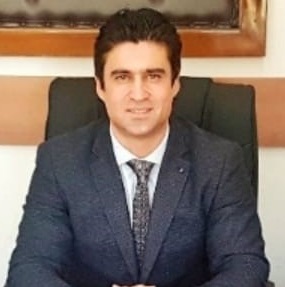
Ahmet Acar is an associate professor at Dokuz Eylül University, Buca Faculty of Education, department of English Language Teaching, Turkey. He has been to Syracuse University (New York) with a Fulbright scholarship, where he studied TESOL, sociolinguistics, and theoretical linguistics. Acar served as a reviewer of Foreign Language Annals, senior associate editor of the Journal of English as an International Language, associate editor of the Asian EFL Journal, regional journal senior advisor of the Asian Education Index and senior advisor of the Chinese EFL Journal.
The Social Action-Oriented Approach: Linking Goals to Practice
The social action-oriented approach (SAOA) has the goal of training learners as democratic citizens and productive professionals who can make society together and work together effectively in the outside world by leading them to act as democratic citizens and productive professionals of their class micro-society/micro-company. While task-based language teaching (TBLT) holds the principle that learners learn to communicate in the outside world by communicating in the classroom, the SAOA holds the principle that learners learn to act together in the outside world by acting together in and/or outside the classroom. Communication in the SAOA is no longer both the means and the goal as in TBLT but just a means at the service of social action. Since pedagogical projects and mini-projects are the best models of social action in the SAOA, a concrete mini-project will be presented to illustrate how such a goal is linked to practice in the SAOA.
Evelina Galaczi

Evelina is Director of Research—English at Cambridge University Press and Assessment. She has
worked in English language education for over 30 years, and her current work focuses on the
challenges—and exciting opportunities— of using AI in language learning, teaching and assessment.
Evelina has explored issues in assessment and learning through her academic publications , webinars
and international presentations. She holds a Master’s and Doctorate degrees in Applied Linguistics
from Teachers College, Columbia University, USA
AI and Tomorrow’s Language Education: Is it Still About the People?
In the rapidly evolving landscape of language education, the integration of AI poses profound questions about the role of human teachers and learners. In this plenary I will explore the intersection of Generative AI and language learning, teaching and assessment through examples of its potential to positively augment and negatively disrupt education paradigms. Ultimately, I will argue for a future trajectory of language education where AI is leveraged to empower learners and teachers while preserving the essential human elements that underpin effective language education.
Luke Harding
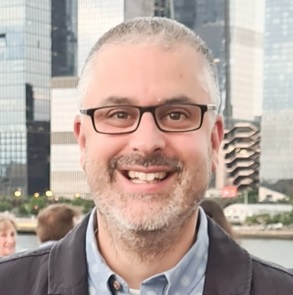
Luke Harding is a Professor of Applied Linguistics at Lancaster University (UK). His research interests are in language assessment and applied linguistics more broadly, particularly assessing listening and speaking, World Englishes and English as a Lingua Franca, language assessment literacy, and ethical dimensions of the use of digital technology in language assessment. Luke served as co-editor of the journal Language Testing from 2017-2022 and is co-editor (with Glenn Fulcher) of the Routledge Handbook of Language Testing (2nd Edition). Luke is currently serving as Vice-President of the International Language Testing Association.
The role of digital technology in assessing and researching communicative competence: Risks and opportunities
Language assessment is currently in a state of disruptive change, driven by paradigm shifts both within and outside the field, as well as the rapid uptake of digital technologies including artificial intelligence. In this talk, I explore this situation with a focus on the assessment of speaking and the multifaceted role digital technology now plays in assessment design, delivery, scoring and research. First, I will discuss a fundamental tension in speaking assessment where the use of digital technology can potentially constrain the ability to capture a broad communicative competence, while at the same time digital communication practices are opening up new and exciting spoken language constructs. Second, I will demonstrate how computational technology – particularly the tools of corpus linguistics – can provide fine-grained insight into the nature of second language speaking. I will end the talk by proposing elements of language assessment literacy (LAL) for assessing speaking that will be required by language teachers in the future.
Tufan Kıymaz
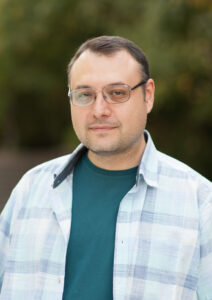
Tufan Kıymaz received his PhD in Philosophy, with a minor in History and Philosophy of Science, from Indiana University, Bloomington, in 2017. The same year he joined Bilkent University Department of Philosophy. His main areas of research are philosophy of mind and philosophy of well-being. The courses he regularly teaches are Introduction to Philosophy and Social and Political Philosophy. He is a member of Bilkent Teaching and Learning Support Center and he is a certified P4C (Philosophy for Children) specialist.
The Use of AI at the Intersection of Ethics and Philosophy of Education
The ethical problems that arise from the use of generative AI in education can be conceptualized differently based on one’s pedagogical approach and philosophical views on education. The purpose and methodology of instruction determines which uses of generative AI tools by the students and/or the instructors should be prohibited, discoursed, allowed, or encouraged. From the larger perspective of philosophy of education, we will discuss ethical aspects of various challenges in education that are being presented by the use of generative AI. We will also ask whether some apparent challenges may rather be opportunities in disguise.
Hande Işık Scott
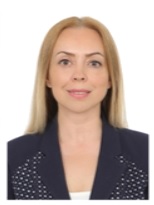
Dr. Hande Işık Scott holds a Ph.D. in English Language Teaching with a concentration in Teacher Education. She has been involved in teacher education since 2001 and has tutored on Cambridge English Delta courses and various M.A. programs. Dr. Scott is the Head of Professional Development at Bilkent University English Language Preparatory Program, where she has held various senior management positions and co-authored in-house coursebooks since 2006. She has published articles in the areas of teacher learning and development, program development and linguistics. She is also the co-editor of the books titled ‘The Future of EAP: Standards, Provision and Practices ’, Classroom Assessment: Bridging Teaching, Learning and Assessment’, ‘The Future of Teaching English For Academic Purposes and Re-Vision and Re-Form in EAP Contexts After the Pandemic’. Her current research interests include 21st century teacher learning and development, EAP teacher competences and implementing the Action-Oriented-Approach in EAP contexts.
Unveiling Tomorrow: AI or IA – the enigmatic assistants of the future
Intelligent Automation (IA), a comprehensive approach that places Artificial Intelligence (AI) at its core, offers enhanced experience. In this talk, we will delve into the common fears surrounding AI and IA. There will be a critical examination of fears such as, decrease in human interaction, the rise of superintelligent machines, privacy concerns and even more. We will address myths through real-world examples, showcasing how AI and IA may enhance productivity and creativity. There will also be an opportunity to participate in live polls, fostering an interactive and dynamic discussion on the future of AI. We will finish off by revealing the underlying benefits that transform these perceived dangers into valuable assets.
Ayça Üner
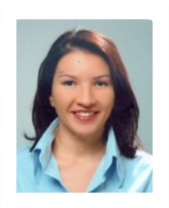
Dr. Ayça Üner has been working as an instructor at Bilkent University since 2002, holding various positions of responsibility. These responsibilities included in-house textbook writing, Cambridge English DELTA course tutoring, leading curriculum development projects and working as a level assessment developer. She holds a Ph.D. in Curriculum and Instruction from Bilkent University. She has conducted research into educational psychology, curriculum design and delivery and assessment related practices and published an article related to student study efforts and its relation to motivational factors in learning a language. She has also co-edited the book titled “Re-Vision and Re-Form in English for Academic Purposes Contexts after the Pandemic.” She has presented at various conferences and peer-reviewed for various journals.
Unveiling Tomorrow: AI or IA – the enigmatic assistants of the future
Intelligent Automation (IA), a comprehensive approach that places Artificial Intelligence (AI) at its core, offers enhanced experience. In this talk, we will delve into the common fears surrounding AI and IA. There will be a critical examination of fears such as, decrease in human interaction, the rise of superintelligent machines, privacy concerns and even more. We will address myths through real-world examples, showcasing how AI and IA may enhance productivity and creativity. There will also be an opportunity to participate in live polls, fostering an interactive and dynamic discussion on the future of AI. We will finish off by revealing the underlying benefits that transform these perceived dangers into valuable assets.